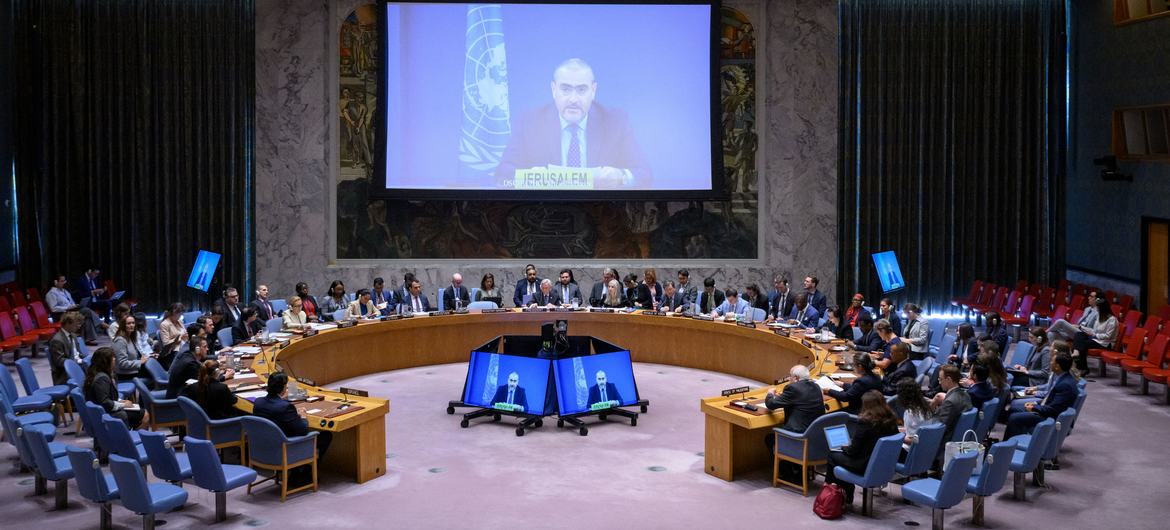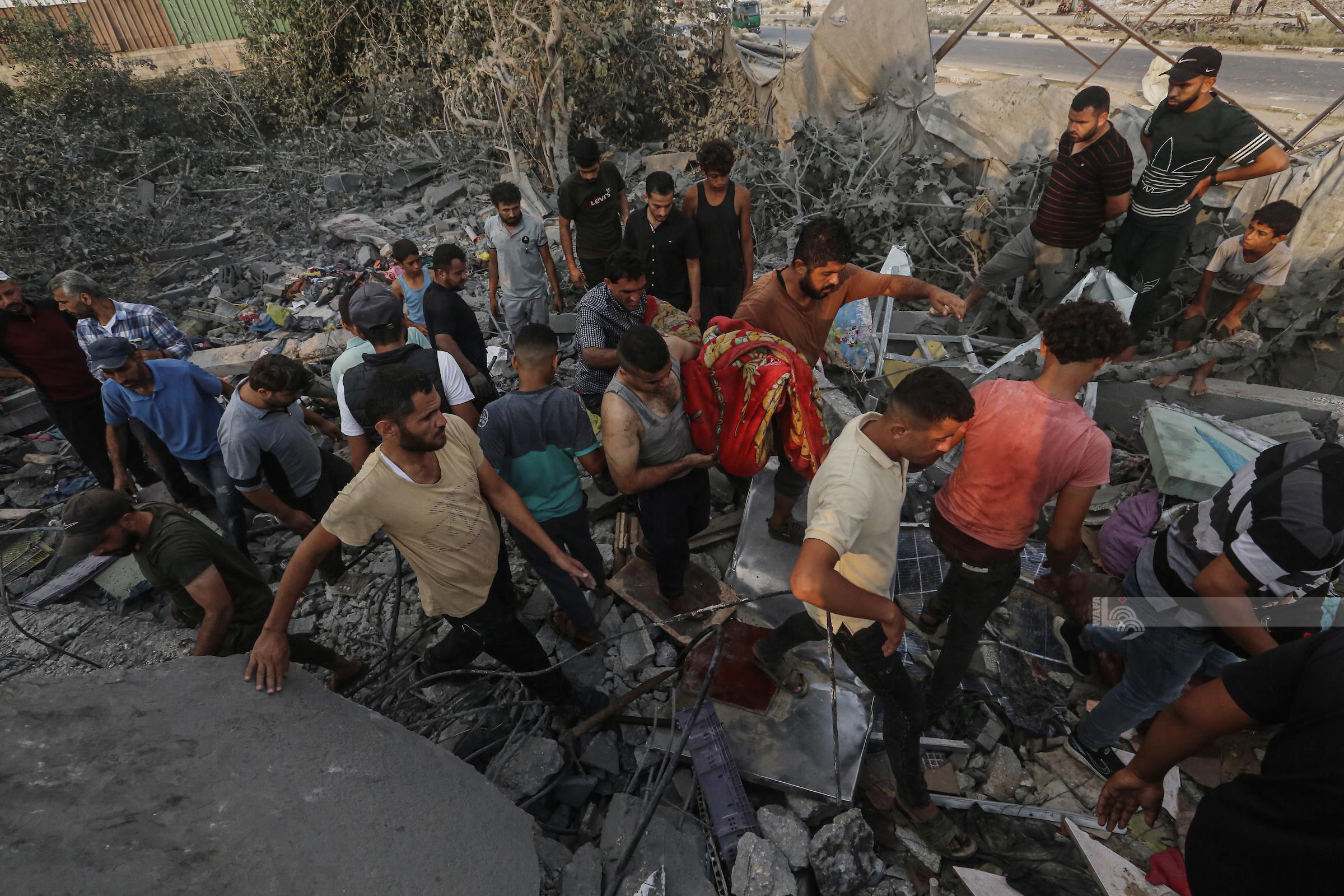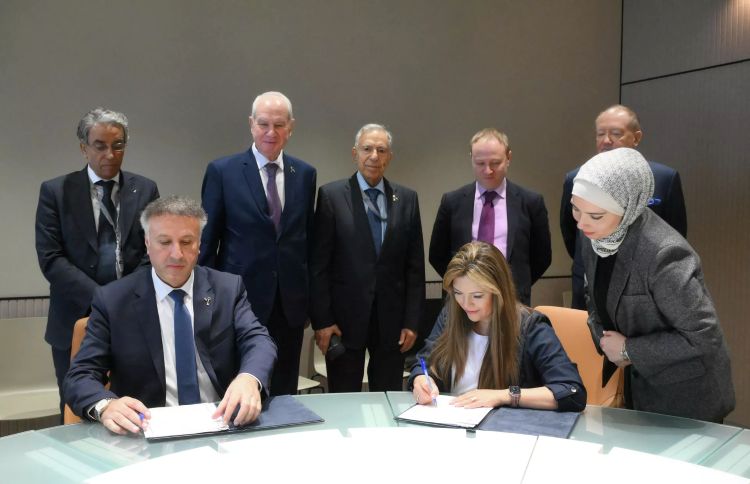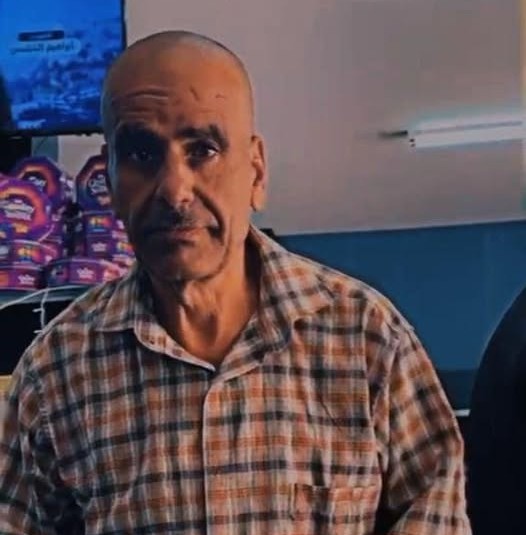NEW YORK, August 27, 2025 (WAFA) - UN Deputy Special Coordinator for the Middle East Peace Process Ramiz Alakbarov said during the Security Council Briefing on the Situation in the Middle East, including the Palestinian Question, that, “Today the world looks on in horror as the situation in the Occupied Palestinian Territory continues to deteriorate to levels not seen in recent history.”
He said that over twenty-two months into the hostilities, Gaza is sinking deeper into disaster, marked by rapidly mounting civilian casualties, mass displacement, and, now, famine.
“The message from the international community is clear: The Two-State solution remains the only viable path toward a just and lasting resolution of the Israeli-Palestinian conflict,” he said.
Stressing the need for a ceasefire in Gaza and the release of all hostages, he told the Security Council on Wednesday that, “What is needed now is bold action to resolve the conflict, end the occupation and re-establish a political horizon.”
He underscored the dire situation in the occupied West Bank, including East Jerusalem, which he stressed “continues to spiral dangerously downward” and “the territory envisioned for a future Palestinian State is shrinking, while a One-State reality of unlawful occupation and perpetual violence is rapidly advancing.”
“Relentless expansion of settlements, demolitions, and intensifying violence continue to undermine any prospect for peace.”
“The choice could not be clearer: continue the current path of perpetual conflict, entrenching the occupation — or recommitting to a political process that will resolve the conflict, end the occupation and realize a Two-State solution.”
He reported that Israeli military strikes have intensified throughout the Strip, hitting tents housing displaced people, schools, hospitals, and residential buildings.
He underscored the continued Israeli targeting of journalists, noting that more than 240 journalists have been killed since the war began on 7 October 2023.
Expressing his shock following a visit to the war-torn enclave, he said: “On my recent visit to Gaza, I was stunned at the scale of the destruction and suffering. I met humanitarian workers risking their lives to deliver aid, while themselves living in intolerable conditions,” he added.
He stressed that although the UN and partners are working tirelessly to assist the people in Gaza, “the security risks are extremely high, and current mitigation measures are woefully insufficient.”
“Ending famine is a race against time. It will require a dramatic increase in the quantity and quality of food entering Gaza. It will also require restoring the basic systems – such as water and sanitation, health services, and food production – all that is needed to sustain human life.”
He noted that more than 32,000 residents of three refugee camps in the West Bank remain displaced as a result of these ongoing Israeli military operations, stressing that, “They must be able to return to their homes, and services, including those of UNRWA, which must be restored.”
Meanwhile, Joyce Msuya, UN Assistant Secretary-General for Humanitarian Affairs, highlighted the recent Integrated Food Security Phase Classification (IPC) analysis, which confirmed that famine is occurring in the Gaza governorate – phase 5 conditions- and is expected to spread in the coming weeks.
She drew attention to some of the numbers, saying over half a million people currently face starvation, destitution and death, which could exceed 640,000 by the end of September.
Msuya noted that approximately one million Gazans are in emergency phase 4, and over 390,000 face phase 3 crisis conditions.
She added that at least 132,000 children under five are expected to suffer from acute malnutrition between now and the middle of next year, while the number of those who risk dying has tripled to over 43,000.
Among pregnant and breastfeeding women, she said the number is predicted to rise from 17,000 to 55,000.
“Let us be clear: This famine is not a product of drought or some form of natural disaster,” she said. “It is a created catastrophe – the result of a conflict that has caused massive civilian death, injury, destruction and forced displacement.”
Msuya urged the Council to ensure an immediate and sustained cessation of hostilities to save lives and stop famine from spreading.
She also called for the immediate and unconditional release of all hostages and for civilians and critical infrastructure to be protected.
The UN Assistant Secretary-General for Humanitarian Affairs further stressed the need for safe, rapid and unimpeded humanitarian access through all entry points, and that aid, including food, medicine, water, fuel and shelter, must be delivered to all people in need.
She also called for the restoration of commercial flows of essential goods on a large scale, including market systems, essential services, and local food production.
“Ending this human-made crisis demands that we act as if it were our mother, our father, our child, our family trying to survive in Gaza today,” she said.
T.R.












